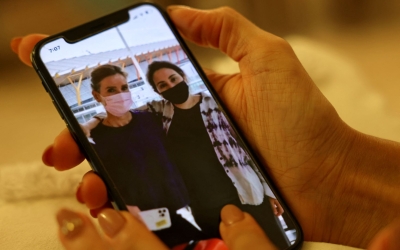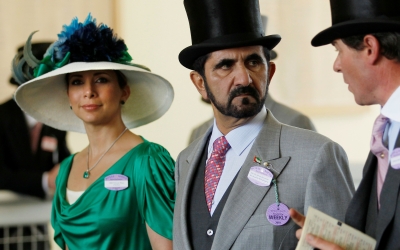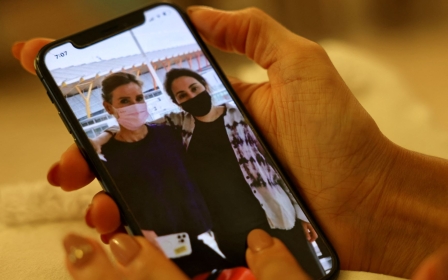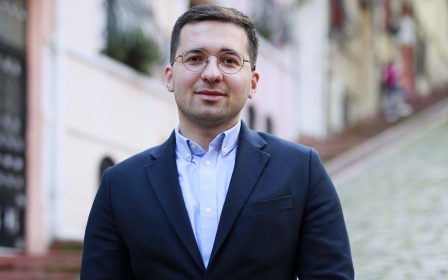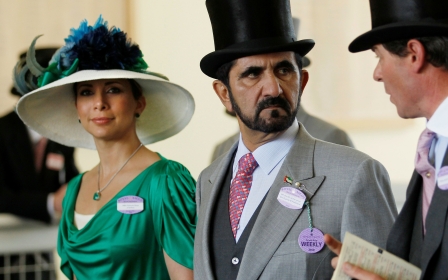Pegasus: Princess Latifa campaigner's phone 'infiltrated by spyware'
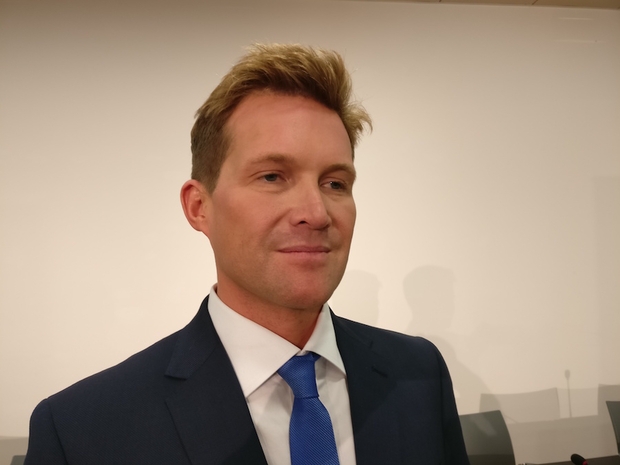
A British human rights campaigner who was working to help release Dubai's Princess Latifa bint Mohammed Al Maktoum from detention had his mobile phone hacked by Pegasus spyware on 3 and 4 August 2020, according to a forensic analysis carried out by Amnesty International.
David Haigh's iPhone 11 was infiltrated by Pegasus software, which is manufactured by Israel's NSO Group, in an attack suspected to have been ordered by Dubai.
New MEE newsletter: Jerusalem Dispatch
Sign up to get the latest insights and analysis on Israel-Palestine, alongside Turkey Unpacked and other MEE newsletters
Amnesty International, Forbidden Stories, and a group of international media organisations have alleged the spyware was used in hacks of smartphones belonging to journalists, officials, human rights activists, and political leaders.
The investigative group says they have acquired a list of 50,000 phone numbers that appear to be targets identified by the Israeli company's clients to be spied upon using Pegasus.
Haigh’s number did not appear on the list, which included phone records only up to 2019. However, reporters asked if he would allow his phone to be tested as part of the ongoing investigation.
'Horrified'
Haigh, who said he was "horrified" that he had been hacked, noted that at the time he had been secretly communicating with Latifa, the daughter of Dubai’s ruler, Sheikh Mohammed bin Rashid Al Maktoum.
Latifa was detained by Dubai operatives and sent back to the emirate in 2018 after she attempted to escape from her father by crossing the Arabian Sea.
Last month, the Washington Post, one of the media organisations that analysed the leaked phone numbers, said Latifa had been captured in 2018 with the help of Pegasus spyware.
The US newspaper said phone numbers belonging to friends and associates of Latifa were added to the leaked list of numbers in the hours and days after the princess escaped Dubai with the help of her friend Tiina Jauhiainen, a Finnish capoeira instructor, in February 2018.
Haigh, 43, said he had been exchanging videos and text messages for more than 18 months with Latifa through a phone that had been smuggled into the Dubai villa, where she was being held after being brought back to the emirate.
According to Haigh, the princess stopped responding on 21 July 2020 and Amnesty's analysis shows that his phone was hacked two weeks later.
Haigh said his phone contained dozens of messages and videos from Latifa, who had made the recordings from her bathroom.
Some of the films were later released by Haigh's Free Latifa campaign to BBC Panorama in February.
At the time of the hacking, Haigh had been helping the legal team of Princess Haya, a wife of Sheikh Mohammed, who is involved in a struggle with the Dubai ruler in the English courts over the custody of their young children.
Haigh told the Guardian newspaper, another media organisation who analysed the leaked phone numbers, that he believed the attack amounted to “state-sponsored harassment” and called on the UK government to investigate “all use of Pegasus software on British soil”.
He has also reported the incident to Devon and Cornwall police, where he lives, and the force has begun investigating the matter.
Dubai did not respond to a request from the Guardian for comment on the targeting of Haigh’s device.
However, last week the United Arab Emirates, the federation of which Dubai is part, said claims that it had ordered any hacking were untrue.
Middle East Eye delivers independent and unrivalled coverage and analysis of the Middle East, North Africa and beyond. To learn more about republishing this content and the associated fees, please fill out this form. More about MEE can be found here.


